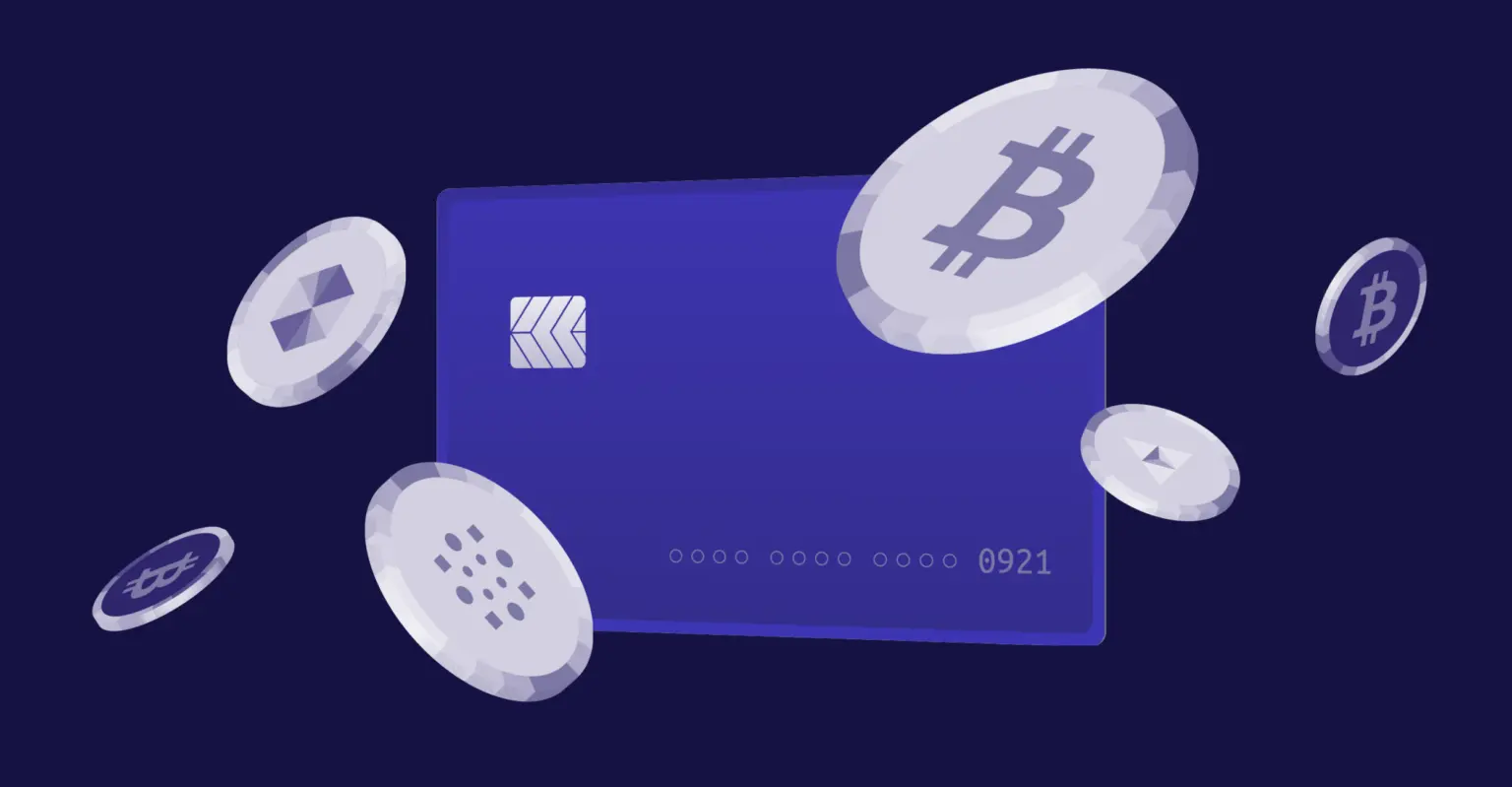List of Cryptocurrency Exchanges: Complete Global Directory 2026

The complete list of cryptocurrency exchanges includes 200+ platforms globally, ranging from major exchanges like Binance and Coinbase to specialized DeFi protocols and regional platforms.
Trying to find the right crypto exchange feels like searching for a needle in a haystack. There are hundreds of platforms out there, each claiming to be the best, safest, or cheapest option available.
Most "exchange lists" you'll find online are either outdated, incomplete, or biased toward platforms paying for promotion. You need accurate information about what's actually available, what works, and what to avoid.
The crypto exchange landscape changes constantly. New platforms launch, established ones shut down, and regulations shift the playing field monthly. FTX was a top-5 exchange until it wasn't. Dozens of smaller platforms have vanished with user funds.
This directory gives you the current state of crypto exchanges worldwide, organized by tier, region, and specialty. Whether you're looking for the best US exchanges or exploring DeFi alternatives, you'll find what you need here.
After watching banks fail repeatedly, many investors are moving to crypto exchanges and DeFi protocols. Choosing the right platform can make the difference between building wealth and losing everything.
Global Cryptocurrency Exchange Landscape 2025
The crypto exchange market has consolidated significantly over the past two years. Major platforms dominate trading volume while smaller exchanges struggle to compete or maintain regulatory compliance.
Market Size and Trading Volume Statistics
Global crypto exchange volume averages $50-100 billion daily, depending on market conditions. The top 10 exchanges handle roughly 80% of this volume, showing significant market concentration.
Binance alone processes 25-30% of global spot trading volume, making it the clear market leader. Coinbase dominates US markets while regional players maintain strong positions in their home territories.
Over 500 crypto exchanges exist globally, but fewer than 50 have meaningful market share. Most trading happens on established platforms with strong liquidity and institutional adoption.
Centralized vs Decentralized Exchanges
Centralized Exchanges (CEXs): Traditional order book models where the exchange holds customer funds and facilitates trades. Examples include Binance, Coinbase, and Kraken.
Decentralized Exchanges (DEXs): Automated market makers running on blockchain networks where users maintain control of their funds. Examples include Uniswap, SushiSwap, and Curve.
CEXs offer better liquidity and user experience but require trusting the exchange with your funds. DEXs provide self-custody and censorship resistance but often have higher fees and complexity.
The trend is toward hybrid models that combine CEX convenience with DEX self-custody features.
Top Tier 1 Global Exchanges (Volume >$1B daily)
These platforms dominate global crypto trading and serve millions of users worldwide.
Binance - Global Volume Leader
Daily Volume: $15-20 billion Supported Countries: 100+ (restricted in US) Asset Selection: 600+ cryptocurrencies Key Features: Spot trading, futures, options, staking, NFTs
Binance offers the most comprehensive crypto platform globally. Low fees, extensive asset selection, and advanced trading features attract both retail and institutional users.
The platform faces regulatory challenges in multiple jurisdictions but remains the volume leader. Binance.US serves American customers with a more limited feature set.
Security includes proof-of-reserves audits and insurance funds, though the exchange has faced hacking attempts and regulatory scrutiny.
Coinbase - US Market Leader
Daily Volume: $2-4 billion Supported Countries: 100+ with full service in US Asset Selection: 200+ cryptocurrencies Key Features: Beginner-friendly interface, institutional services, regulatory compliance
Coinbase pioneered regulated crypto trading in the US and maintains the strongest compliance record among major exchanges. The platform emphasizes security and regulatory cooperation.
Coinbase Pro offers advanced trading features while the main app serves casual investors. Institutional products include custody services and prime brokerage.
Higher fees than competitors reflect the costs of US regulatory compliance and insurance coverage.
Kraken - Security-Focused Platform
Daily Volume: $500M-1B Supported Countries: 50+ including US and Europe Asset Selection: 100+ cryptocurrencies Key Features: Advanced security options, margin trading, futures
Kraken built its reputation on security and has never suffered major fund losses. The platform offers the most comprehensive security features including hardware key support.
Trading features include spot, margin, and futures markets with competitive fees for active traders. The interface requires more technical knowledge than beginner-focused platforms.
Customer service quality varies but security-conscious users appreciate Kraken's paranoid approach to fund protection.
Huobi - Asian Market Presence
Daily Volume: $1-2 billion Supported Countries: Global with restrictions Asset Selection: 300+ cryptocurrencies Key Features: Spot trading, derivatives, DeFi services
Huobi maintains strong positions in Asian markets despite regulatory challenges. The platform offers comprehensive trading services including spot, futures, and options.
Recent years brought regulatory scrutiny and market share losses to competitors. The exchange continues operating globally but faces access restrictions in some jurisdictions.
Major Regional Exchanges by Continent
Regional exchanges serve local markets with features tailored to specific regulatory environments and user preferences.
North American Exchanges
United States:
- Coinbase Pro: Market leader with regulatory compliance
- Kraken: Security-focused with advanced features
- Gemini: Trust company regulated in New York
- Binance.US: Limited version of global Binance
- KuCoin: Extensive altcoin selection
Canada:
- Coinsquare: Largest Canadian exchange
- Bitbuy: Regulated Canadian platform
- Newton: Low-fee Canadian option
European Exchanges
Multi-European:
- Bitstamp: One of the oldest exchanges, Luxembourg-based
- Bitpanda: Austrian exchange with European focus
- eToro: Social trading platform with crypto
United Kingdom:
- Coinbase Pro: Full UK operations
- Kraken: Strong UK presence
- Binance: Limited UK services
Germany:
- Bitcoin.de: Peer-to-peer German platform
- Bison: Börse Stuttgart digital exchange
Asian Exchanges
Japan:
- bitFlyer: Largest Japanese exchange
- Coincheck: Major Japanese platform
- GMO Coin: Financial services company exchange
South Korea:
- Upbit: Largest Korean exchange
- Bithumb: Major Korean platform
- Coinone: Established Korean exchange
Singapore:
- Crypto.com: Global headquarters in Singapore
- Bybit: Derivatives-focused platform
Emerging Market Exchanges
India:
- WazirX: Largest Indian exchange
- CoinDCX: Major Indian platform
- ZebPay: Established Indian exchange
Brazil:
- Mercado Bitcoin: Largest Brazilian exchange
- Foxbit: Major Brazilian platform
Nigeria:
- Luno: Popular African exchange
- Quidax: Nigerian-focused platform
Specialized Exchange Categories
Different platforms specialize in specific types of crypto trading and services.
Decentralized Exchanges (DEXs)
Ethereum-Based:
- Uniswap: Largest DEX by volume
- SushiSwap: Community-driven DEX
- Curve: Specialized in stablecoin trading
- Balancer: Automated portfolio management
Multi-Chain DEXs:
- PancakeSwap: Binance Smart Chain DEX
- Trader Joe: Avalanche-based DEX
- Raydium: Solana ecosystem DEX
DEXs enable trading without giving up custody of your funds. They're essential for accessing new tokens and maintaining financial sovereignty.
Derivatives and Futures Platforms
Perpetual Futures:
- Bybit: Popular derivatives platform
- FTX: Advanced derivatives (now defunct)
- BitMEX: Bitcoin futures pioneer
- OKX: Comprehensive derivatives offering
Options Trading:
- Deribit: Options market leader
- Binance: Options alongside spot trading
Derivatives platforms offer leverage and hedging tools for sophisticated traders. High risk makes them unsuitable for beginners.
Fiat-to-Crypto On-Ramps
Credit Card Purchases:
- Moonpay: Integrated into many wallets
- Simplex: Popular payment processor
- Banxa: Global fiat gateway
Bank Transfer Services:
- Coinbase: Direct bank connections
- Kraken: Wire transfer support
- Gemini: ACH and wire transfers
On-ramps solve the first-mile problem of converting traditional money into cryptocurrency.
Exchange Selection Criteria
Choosing the right exchange depends on your specific needs, location, and experience level.
Security and Regulatory Compliance
Security Features to Look For:
- Cold storage for customer funds (95%+ offline)
- Insurance coverage for digital assets
- Two-factor authentication requirements
- Withdrawal whitelisting and delays
- Proof-of-reserves audits
Regulatory Considerations:
- Proper licensing in operating jurisdictions
- Compliance with local AML/KYC requirements
- Transparency about corporate structure
- History of regulatory cooperation
Security should be your top priority when choosing exchanges. No trading features are worth losing your funds to hacks or exit scams.
Trading Fees and Features
Fee Structures:
- Maker/taker fees for spot trading
- Volume-based fee reductions
- Native token discounts
- Withdrawal fees by cryptocurrency
Trading Features:
- Order types (market, limit, stop-loss)
- Charting and technical analysis tools
- API access for algorithmic trading
- Mobile app functionality
Consider your trading frequency and style when evaluating fee structures. Active traders need the lowest possible fees while casual investors can prioritize other features.
Supported Assets and Pairs
Asset Categories:
- Major cryptocurrencies (Bitcoin, Ethereum)
- Altcoins and DeFi tokens
- Stablecoins for trading pairs
- Fiat currency support
Trading Pairs:
- Crypto-to-crypto pairs
- Crypto-to-fiat pairs
- Stablecoin base pairs
Make sure your chosen exchange supports the assets you want to trade and offers liquid markets for your preferred pairs.
Regulatory Status by Jurisdiction
Crypto exchange regulations vary significantly by country and continue evolving rapidly.
Highly Regulated Markets:
- United States: State-by-state licensing plus federal oversight
- European Union: MiCA regulations coming into effect
- Japan: Comprehensive crypto exchange licensing
- United Kingdom: FCA registration requirements
Emerging Regulations:
- Canada: Provincial securities regulation
- Australia: AUSTRAC registration
- Singapore: MAS licensing for payment services
Restrictive Jurisdictions:
- China: Banned cryptocurrency trading
- India: Unclear regulatory status
- Russia: Limited crypto trading allowed
Always verify that your chosen exchange operates legally in your jurisdiction before depositing funds.
Future of Cryptocurrency Exchanges
The exchange landscape continues evolving with new technologies and regulatory developments.
Technology Trends:
- Layer 2 integration for lower fees
- Cross-chain trading capabilities
- Institutional custody solutions
- DeFi protocol integrations
Regulatory Evolution:
- Clearer compliance frameworks
- Institutional investor protections
- Stablecoin regulations
- Cross-border coordination
Market Consolidation:
- Smaller exchanges shutting down
- Regulatory compliance costs
- Institutional partnerships
- Traditional finance integration
Successful exchanges will adapt to changing regulations while maintaining the innovation that makes crypto unique.
Ready to start trading crypto safely? Learn how Decentralized Masters members choose exchanges and build portfolios using the proven ABN System. Discover why understanding cryptocurrency investing basics is essential before choosing any trading platform.
Frequently Asked Questions
What happens if my exchange shuts down?
If properly regulated, customer funds should be returned, but recovery can take time. This is why self-custody is important for large holdings.
Are smaller exchanges worth using?
Smaller exchanges may offer unique features or assets but generally carry higher risks than established platforms.
How do I choose the right exchange for me?
Consider factors like security, regulatory compliance, fees, supported assets, and available features based on your trading needs.
Do I need multiple exchange accounts?
Using multiple exchanges provides backup access and access to different cryptocurrencies, but managing security across platforms requires extra care.
What's the difference between CEX and DEX?
Centralized exchanges hold your funds and facilitate trades, while decentralized exchanges let you trade directly from your wallet.
Can I use any exchange from anywhere?
No, exchanges have geographic restrictions based on local regulations. Always verify that an exchange serves your jurisdiction legally.
Which cryptocurrency exchange is safest?
Exchanges with strong security track records, regulatory compliance, and insurance coverage like Coinbase, Kraken, and Gemini are generally considered safest.
How many cryptocurrency exchanges exist worldwide?
Over 500 exchanges operate globally, though fewer than 50 have significant market share and trading volume.




